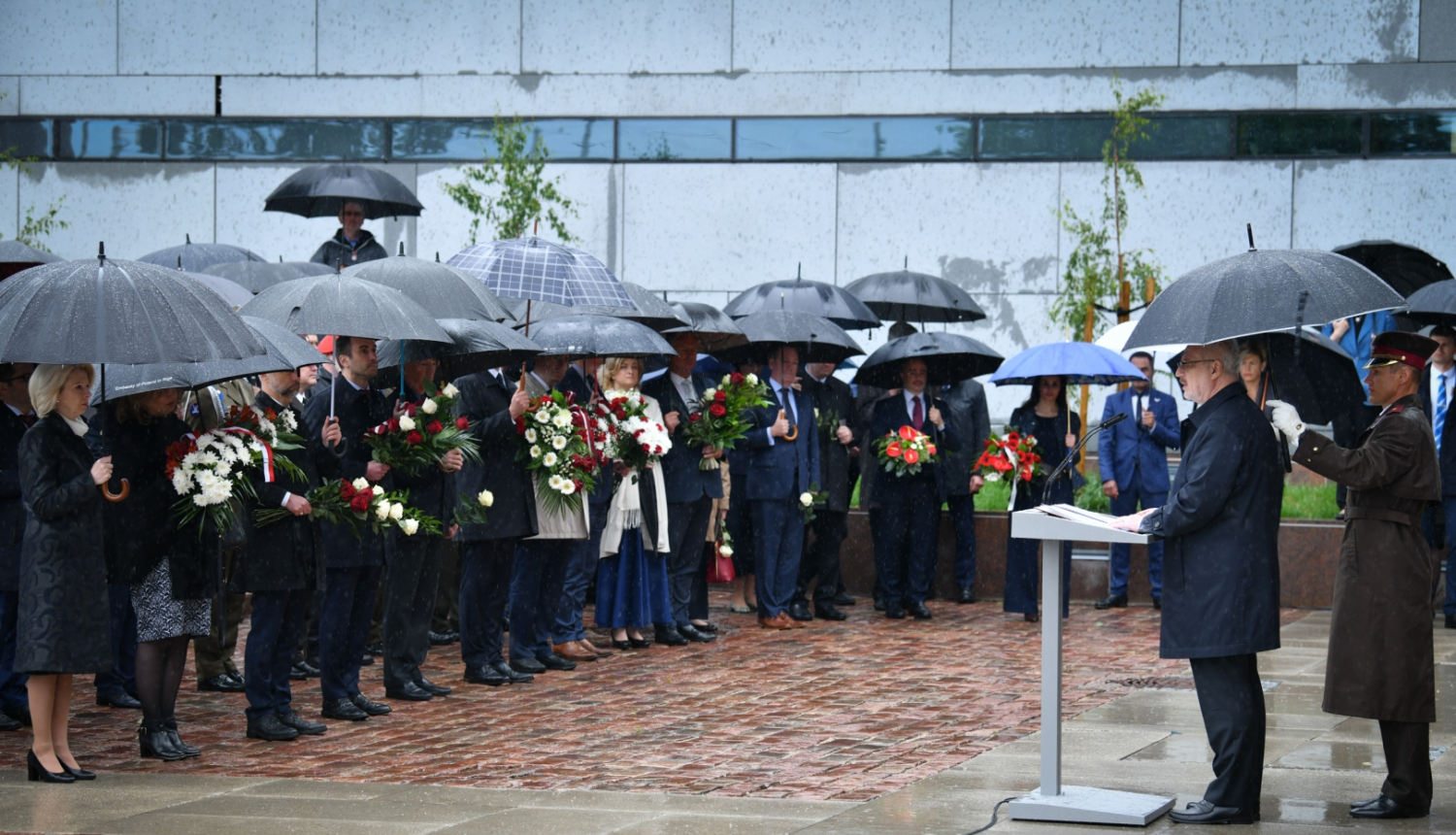Excellences, ladies and gentlemen,
14 June is the day on which all people of Latvia demonstrate their shared interest in commemorating the victims of deportations. This shared desire to commemorate united our people during the Awakening as much as it does today.
14 June is the day when we remind the world of crimes committed by Soviet Russia occupation power against Latvia. Repressions inspired by communist ideology targeted Latvians and different ethnic groups of citizens within independent Latvia. The objective was plain to see, unmistakable. Bring down the Latvian State. There is no statute of limitations for such crimes against humanity.
This 14 June is special. Russia’s war against Ukraine brings back all the horrors of occupation, images of dead or deported loved ones, and thousands of Latvian refugees in full colour. Past violence is just a step away from on-going atrocities committed by Russian soldiers in Ukraine every day. It is a carbon copy of Soviet and Nazi occupations we have witnessed. That is why we know when Russia is committing genocide against Ukrainian people. It is not just aggression.
Deportations of 14 June 1941 remind us of what may happen if free and democratic world decides to remain neutral and let totalitarian regime exert terror on its neighbours, when it chooses the policy of appeasement, when it is afraid of enraging the aggressor.
Ukrainian cities of Mariupol and Bucha have become the modern history of violence in Europe in 21st century. Latvia cannot stand on the side today. We are helping Ukraine militarily, politically and in humanitarian area. The whole democratic world supports Ukraine. We must make sure those who have committed crimes are held accountable. Everyone, from those who gave orders to those who followed them.
Russia is Soviet Union’s legal successor, but it has never admitted its responsibility for crimes against Latvian people committed by Soviet occupation power. Russian history books and people believe that deportation of Baltic people was somewhat justified. But we know clearly from our past: as long as Russia is ruled by an autocratic and imperialistic regime the world is in danger.
Ladies and gentlemen,
We are standing next to renovated Museum of Latvian Occupation. Occupation museum has been shedding light on history and crimes of totalitarian regimes for already 29 years now. Thousands of foreigners and numerous world leaders have visited the museum. Museum is also popular among children and many Latvians from other countries. Two weeks ago, museum received another addition, a modern display detailing the history of occupation. It shows the tragedy witnessed by many Latvian families and courage of our people in the face of degrading exile.
On days like today we share our common past with others. When you know your past, you know what unites you with your fellow men and women. Museum is this vast collection of memories. It resounds in thousands of voices of exile-tortured souls, unravelling their life stories and how deportations affected Latvian people, our families.
Latvian State and non-governmental actors have commemorated the victims of Soviet political repressions ever since we restored our independence. Understanding of deportations has become a moral benchmark for people of various political affiliations. 14 June, just like 25 March, are not just dates in the calendar. These are key dates that have shaped Latvian identity throughout our cultural space, our historical space, European space.
Generations come and go but the need for such moral benchmark remains. That is why sharing history of deportations with young people is so important.
Ladies and gentlemen,
On 14 June we bow our heads to all those Latvians who perished on the way to Siberia, everyone who died of hunger, being frost-bitten, sick or shot by chekists. These people killed by totalitarian regime of Soviet Russia are greatly missed by people of Latvia. Too many productive lives were lost, too many dreams unfulfilled. Too many people who could have made us greater and more productive in terms of culture, economy and governance. Too many unique life stories and voices.
14 June is the day when we show how important memory about each loyal Latvian, each victim of political repression in the Soviet Union is to our nation.
God bless Latvia!





